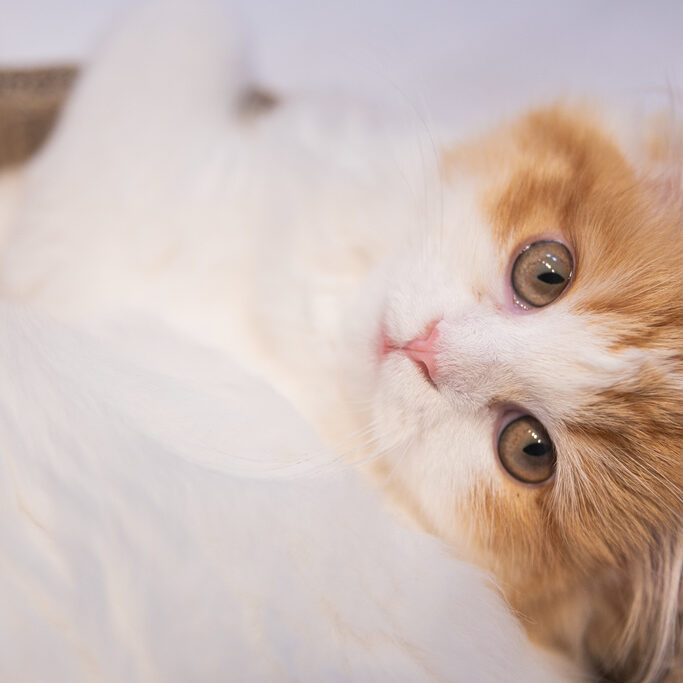
The Munchkin cat breed, with its original appearance and originating from the United States, is a rarity in the rest of the world. Its characteristic short legs are due to a natural and spontaneous mutation.
Summary
Origin and History
The Munchkin breed’s history began in the 1980s in the United States when a short-legged cat named Blackberry, who was found as a stray, produced a litter of kittens, some of which inherited her unique leg trait. This trait was discovered to be caused by an autosomal dominant gene, which means that if a kitten inherits the gene from just one parent, it will have short legs. The breed has since been developed and refined, gaining recognition and popularity for its distinctive look and charming personality.
Physical Characteristics
Munchkins are medium-sized cats with short, stubby legs, but what they lack in leg length, they make up for in personality. Their body is compact and well-proportioned, with a muscular build that supports their active lifestyle. The breed comes in a variety of coat colors and patterns, and their fur can be either long or short. Their eyes are large and expressive, adding to their overall adorable appearance.
Personality and Temperament
Munchkins are known for their playful, outgoing, and people-oriented nature. They are curious and adventurous, often finding innovative ways to explore their surroundings despite their short legs. Their energy levels are high, and they enjoy playing with toys, climbing (to an extent), and participating in household activities. Munchkins are also affectionate, enjoying the company of their human companions and often seeking out laps or warm places to cuddle.
Care and Health
Overall, Munchkins are a healthy breed, but their unique physique requires some special considerations. It’s important to monitor their weight to avoid putting extra stress on their short legs and spine. Regular exercise through play can help maintain a healthy weight and keep them agile. Their coat, whether long or short, requires regular grooming to keep it in good condition. As with all cats, regular veterinary check-ups, vaccinations, and preventive care are essential for a long and healthy life.
Living with a Munchkin
Munchkins are adaptable and can thrive in various living environments, from apartments to larger homes with outdoor access. Their social and affectionate nature makes them great companions for families, singles, and seniors alike. They get along well with children and other pets, given proper introductions and socialization. The breed’s intelligence and playful demeanor mean they appreciate interactive toys and puzzle feeders that challenge them mentally and physically.
Latest on CatOlympus
Feline Health: Debunking Myths and Unveiling Truths About Feeding Your Cat
In the realm of pet care, few topics are as riddled with myths and misconceptions as the diet of our...
Cats and Technology: Innovative Toys for Your Pet
In the era of smart living, even our feline friends can enjoy the perks of technological advancements. The fusion of...
The Reign of Cats on the Internet: An Exploration of Feline Fame
The Reign of Cats on the Internet: An Exploration of Feline Fame In the vast expanse of the internet, one...
Easy and Free Cat – Human Age Calculator
Understanding Cat Years: A Guide to Your Cat's Age in Human Years As cat lovers, we often marvel at our...













